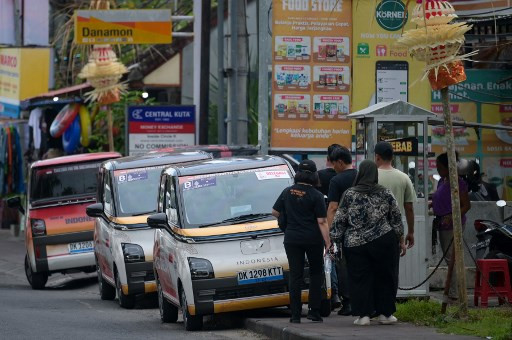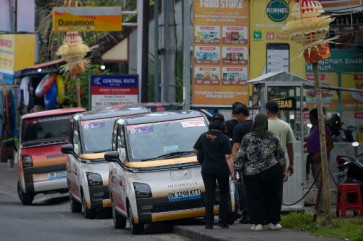Popular Reads
Top Results
Can't find what you're looking for?
View all search resultsPopular Reads
Top Results
Can't find what you're looking for?
View all search resultsThe future and challenges of electromobility in ASEAN
While ASEAN countries have set their individual EV targets, they would have a greater chance of meeting these if they cooperated in resource sharing to drive EV adoption across the region.
Change text size
Gift Premium Articles
to Anyone
E
lectric vehicles (EVs) have gained significant momentum globally, including in ASEAN. Ten member countries have announced or updated their EV mandates set between 2025 and 2050.
The targets are translated into different milestones in EV supply chains, from the number of EV sales, production, charging stations and imports to Indonesia’s ban on nickel ore exports since 2020 and Singapore’s plan to phase out internal combustion engine (ICE) vehicles by 2040.
ASEAN’s EV progress over the past two years is, in fact, promising. As of 2022, the regional EV figure (including hybrid EVs) reached 271,000 units. The number of EVs registered in each member state are: 47 in Cambodia, 25,300 in Indonesia, 3,200 in Laos, 2,600 in Malaysia, 14,000 in the Philippines, 3,600 in Singapore, 218,000 in Thailand and 4,300 in Vietnam.
EV uptake will be more rapid in the coming years, with three major countries aiming for 100 percent sales as soon as 2035 (Thailand), 2040 (Singapore) and 2050 (Indonesia).
The transition to electric-powered transport is not a mere impulse to follow other countries. The 7th ASEAN Energy Outlook (AEO7) emphasized the vital role of EVs in achieving the region’s energy intensity reduction target of 32 percent by 2025, known as the APAEC target.
Promotion of more efficient appliances, electrification of industrial processes, better fuel economy and higher EV deployment could boost energy savings to 10.9 percent by 2025 and 34.3 percent by 2050, compared to the projected total final energy consumption (TFEC) in the baseline scenario. These measures will notably reduce energy use in the transportation and industry sectors, which respectively contributed 35 percent and 39 percent of TFEC in 2020.
Surging EV ownership implies not only increasing end-user demand but also altering the overall load profile. A recent study by Stanford University warns about the emerging stress to the electric grid in 2035 due to a 25 percent jump in peak demand during nighttime charging.


















